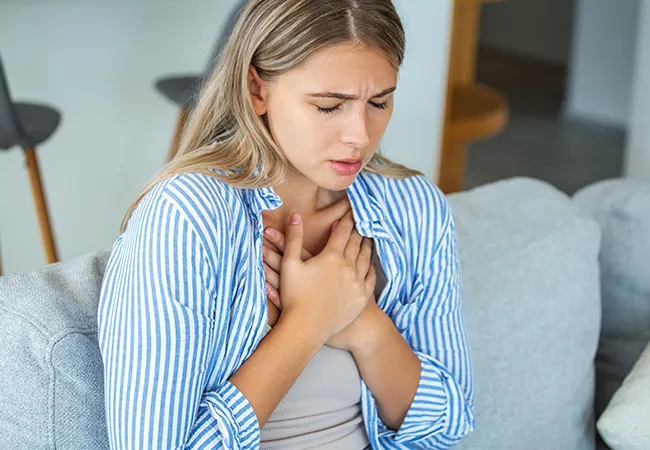


Gastroesophageal reflux disease (GERD) is a common condition in children that occurs when stomach acid frequently flows back or refluxes into the esophagus, causing irritation. GERD can lead to discomfort, including heartburn, vomiting, and change to poor feeding. At Manisha “Mona” Dave, MD – Pediatric Gastroenterology, we specialize in diagnosing and treating GERD in children and young adults.
Proper treatment of GERD is crucial for long-term digestive health and to prevent complications. Dr. Mona Dave combines medical treatment with dietary and lifestyle adjustments to provide effective relief and help manage the symptoms of GERD. If you’re searching for a GERD doctor in Frisco, TX, our clinic offers specialized care tailored to your child’s needs.
Our approach to treating GERD combines medical interventions with lifestyle changes:

The lower esophageal sphincter (LES) often fails to prevent stomach acid from refluxing into the esophagus, leading to GERD.

Antacids, H2 blockers, and proton pump inhibitors (PPIs) are used to reduce stomach acid and alleviate GERD symptoms.

Adjustments to your child’s diet can significantly help manage acid reflux and GERD, including avoiding trigger foods.

For infants, proper positioning during and after feeding can help reduce reflux episodes.

In severe cases, surgical interventions like fundoplication may be considered to help control GERD.
Dr. Mona Dave is a double board-certified pediatric gastroenterologist with over 20 years of experience in diagnosing and treating pediatric GI disorders, including GERD. Families choose her for her:
Same-week diagnoses are available for many patients.
Tailored care that addresses both symptoms and the root causes of GERD.
Combining medications, lifestyle changes, and dietary recommendations to ensure long-term relief.
A child-friendly, family-focused environment where both children and parents feel comfortable and supported.
Acid reflux is a one-time occurrence of stomach acid flowing back into the esophagus, while GERD is a chronic condition where acid reflux happens frequently and causes irritation in the esophagus.
Common symptoms of GERD in children include heartburn, regurgitation, vomiting, difficulty swallowing, and chronic cough.
GERD is diagnosed based on medical history, symptoms, and sometimes diagnostic tests like endoscopy or pH monitoring.
Untreated GERD can lead to esophageal damage, strictures, and a higher risk of esophageal cancer over time.
Management includes dietary changes, elevating the head of the bed, avoiding trigger foods, and ensuring your child maintains a healthy weight.